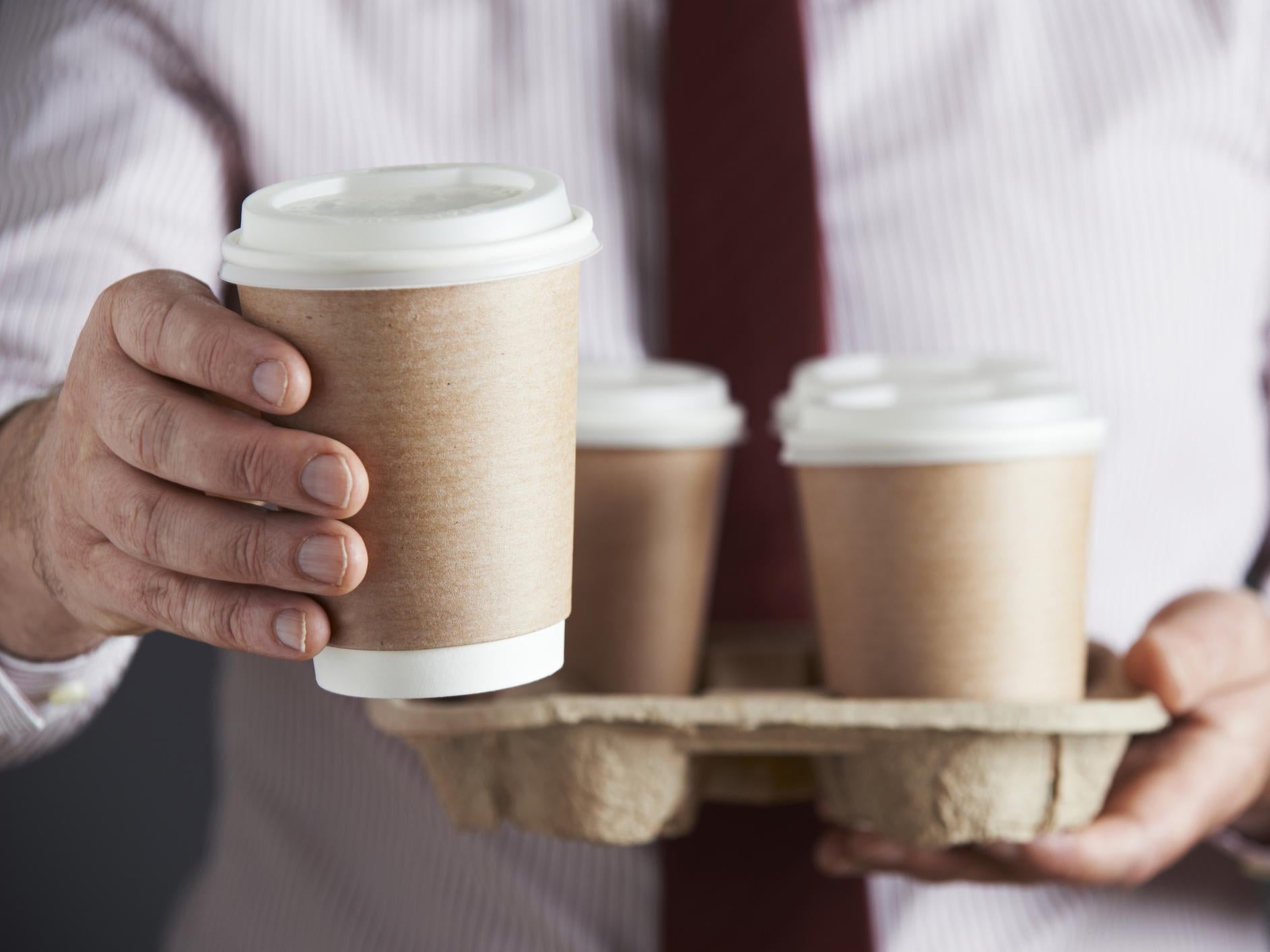A latte levy is the right way to change our excessive plastic habit
These kind of green levies are one of the best instruments in pursuing environmental sustainability

Mary Creagh, the chair of the Environmental Audit Committee of MPs, has a way with soundbites. Her committee’s report proposes a 25p “latte levy” on disposable coffee cups, with the proceeds to be earmarked to improve the UK’s recycling “binfrastructure”.
But Ms Creagh’s plan is not just a collection of clever slogans. It is a serious attempt to deal with a small but visible part of a much bigger problem. Thanks partly to Sir David Attenborough, we are more aware of the threat to our environment from single-use plastics, and Ms Creagh’s committee makes a sensible proposal.
It may be objected that 25p per disposable coffee cup is a bit steep, and certainly that can be considered up for grabs as the proposal is now debated. But the levy would have to be enough to be noticed. The prices people are prepared to pay for takeaway coffee suggest a certain amount of what economists call price inelasticity, so it might take something of a jolt to induce a change of behaviour. In the UK we use 7 million disposable coffee cups every day. Less than 1 per cent are recycled.
The example of the 5p levy on plastic carrier bags shows how successful such a levy could be. England was the last part of the UK to bring in the carrier bag charge, in October 2015, and the Department of the Environment, Food and Rural Affairs reported a drop of 85 per cent in their use in the first year. The numbers used are likely to bounce back somewhat after the initial effect, but in Northern Ireland, which imposed a levy in 2014, the lasting reduction has been about 40 per cent.
In Ireland, which has had a levy since 2002, the amount of the tax has been raised repeatedly – it is now €0.22 – in order to restore the disincentive effect after shoppers became accustomed to the new level.
These kind of green levies are one of the best instruments in pursuing environmental sustainability. It makes sense to work with the grain of market forces by using the price mechanism to impose a cost on environmentally damaging behaviour. In economic theory, a green tax puts a price on environmental damage, thus simultaneously enforcing the “polluter pays” principle and discouraging pollution in the first place.
Michael Gove, the Environment Secretary, in his speech on farming on Thursday, spoke about the need to “reduce our reliance on plastics”. Here is one way to do so. A latte levy would encourage the recycling of paper or plastic cups, and raise the money to pay for it.
But Mr Gove should not stop there. Single-use plastics are a huge, lasting problem for we human custodians of this planet. Levies on coffee cups and plastic bags are intrusive, symbolic and widely supported, but they should be used to press for the wider principle of green taxes on plastics generally.
Governments around the world need to put a price on the plastic junk floating around our common oceans, and bloating our landfill sites, and encourage consumers to reduce, reuse and recycle. Mr Gove is on a mission to re-green the Conservative Government’s reputation. On single-use plastics, Ms Creagh has given him a good place to start.
Join our commenting forum
Join thought-provoking conversations, follow other Independent readers and see their replies
Comments
Bookmark popover
Removed from bookmarks